 |
A man waves a banner with the logo of the Comité de Unidad Campesina. Graham Hunt
|
In an
interview with the Guatemalan newspaper Prensa Libre in San Pedro Sula, Honduras, Carlos Daniel de León of the Commerce and Investment Agency of Guatemala made known on February 19 that representatives of Guatemala’s private sector had submitted to the executive branch of the government a proposal for a law that would regulate the carrying out of community referenda in Guatemala. “The process is being evaluated,” he explained, “so that not just anybody can have a community consultation, but that rather, in reality, it will be the institutions and in the adequate format.” He went on to clarify that “It has been a proposal of the private sector and is being evaluated by the Presidency–of the Republic–to to put systems in place to regulate the referendum process.”
 |
| Graham Hunt |
On February 23, president Álvaro Colom of the Unidad Nacional de Esperanza party convoked delegates of various sectors of civil society and private enterprise to the unveiling of the government’s proposal for a law regulating community consultations. As reported in a previous post regarding the good faith community referendum of San Juan Ostuncalco, on his visit to Guatemala in June 2010, U.N. Special Rapporteur on the Human Rights and Fundamental Liberties of Indigenous Peoples, James Anaya, denounced that since the ratification of ILO Convention 169 by the Guatemalan government in 1996, authorities have frequently taken the legal vacuum present with regards to its practical implementation as a lack of legal obligations to see to its application. Indigenous organizations and communities, however, allege that the government’s current proposal is a product of the initiative of private enterprise and, on February 23, denouncing that they are not being consulted as the government moves to regulate community referenda, the Consejo de Pueblos de Occidente (CPO), the Asamblea Departamental de Huehuetenango (ADH) the Consejo de Pueblos K’ichés (CPK), the Coordinación y Convergencia Nacional Maya Waqib’ Kej, the Comité de Unidad Campesina (CUC), the Coordinadora Nacional de Viudas de Guatemala (CONAVIGUA) and the collective MadreSelva, among other groups, staged a protest outside of the National Palace, site of the official meeting.
 |
Members of the Consejo de Pueblos de Occidente (CPO) hold a banner featuring an image of U.N. Special Rapporteur on the Fundamental Rights of Indigenous Peoples, James Anaya, on his visit to Guatemala in June 2010. Pancho Guindon.
|
In his
preliminary observations regarding his june 13-18 visit to Guatemala, Anaya recognized that “the absence of a legislative and institutional framework has given rise to processes of consultation that are, to say the least, insufficient from the perspective of the international standards that recognize the rights of indigenous peoples.” He went on to say that “On the one hand, for some governmental sectors, the lack of internal regulation implies the absence of an effective obligation to consult. From the perspective of international human rights law, nonetheless, this position is unsustainable. The dispositions of Convention 169 are directly executable and of obligatory compliance by all public agents. This conclusion has been confirmed by the jurisprudence of the Constitutional Court, which has expressly affirmed that consultation constitutes a fundamental right, part of the block of Constitutional rights–on a level with other rights recognized in the Constitution. The argument as to the lack of an obligation to consult indigenous peoples has contributed greatly to the situation of grave legal insecurity of extractive activities and investment in the country.”
“On the other hand,” he continued, “there has come into being a debate as to the validity of the so-called good faith community referenda, referenda carried out by the very indigenous communities affected by mining or hydroelectic projects in application of the dispositions of the Municipal Code, and in the majority of which the communities have manifested themselves against such projects. The Constitutional Court has interpreted that these referenda are not strictly binding given that municipalities do not have authority where mining is concerned. In any case, I consider that the transcendence of community referenda does not exhaust itself with the question as to whether or not they are binding from the perspective of internal law. These initiatives are valid and relevant to the degree that they constitute a reflection of the legitimate aspirations of indigenous communities to be listened to with relation to any project that may have an impact in their traditional territories.”
He reiterated the need that a legal step be taken, affirming that “The regulation of referenda would grant these processes the greater legal certainty and security that are necessary for all action on the part of public powers. Various international organisms, such as the Committee for the Elimination of Racial Discrimination (CERD), the Commission of Experts on the Application of International Conventions and Recommendations of the ILO and the Constitutional Court, itself, have declared themselves in this vein. The majority of the interested actors, including various government ministries, organizations and indigenous peoples, along with the business sector, appear now to agree with the necessity of advancing urgently toward this objective.”
 |
| Graham Hunt |
As reported in the
Prensa Libre and
La Hora, the protest action in the capital was mirrored by a CPO/ADH press conference in the western department of Huehuetenango, where 30 of 32 municipalities have carried out community referenda in which the population has roundly rejected all types of mining operations. As reported in the Prensa Libre, Francisco Morales of ADH expressed the groups rejection of the governmental initiative, saying that “Said regulation responds to the interests of the powerful classes, and therefore we won’t allow it to enter into effect; the community consultations are not negotiable, because they come from the people and are true democratic processes that look to present the point of view of the population, principally regarding mining exploitation and the construction of hydroelectric dams and megaprojects.”
 |
The palace was guarded by a large delegation of officers of the National Civil Police force. Graham Hunt
|
In a
press release, the Consejo de Pueblos de Occidente (CPO) manifested that “The intention to regulate the Right to Consultation contained in ILO Convention 169 is arbitrary, contradicts the very essence of this instrument and threatens, on the part of the State of Guatemala, principles of international law.” The CPO likewise expressed that “Should the regulation be passed, the spirit of the Convention shall be distorted, restricted and threatened in many of its intentions, thereby affecting fundamental rights of indigenous peoples contained in this international instrument, among them, the rights to consultation, forms of social organization and internal processes proper to indigenous peoples and the right to land.” CPO concluded that “We interpret this intention as a racist act of bad faith which, with an apparent desire that the State comply with its international obligations, disguises mechanisms that violate our rights and looks to consolidate individual national and foreign economic interests.” The CPO demanded that the executive branch of the government respect the referenda already carried out in indigenous territories, that indigenous communities’ right to consultation be respected, and that the authorities desist in their attempt to regulate community consultations without the consent of the communities.
 |
| Graham Hunt |
Similarly, in a
press release, the Consejo de Pueblos K’ichés demanded that the government “Respect and not violate ancestral systems of consultation,” that it “Respect the results of the good faith community referenda






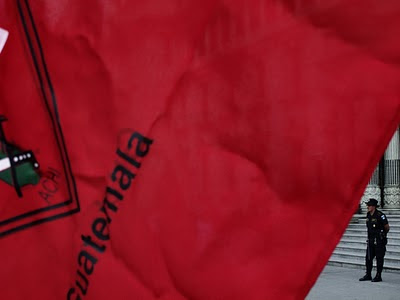

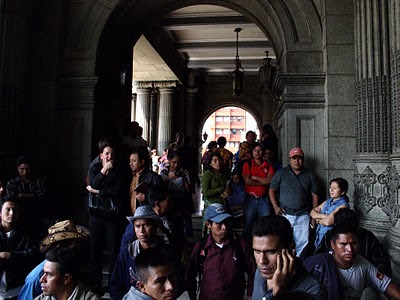




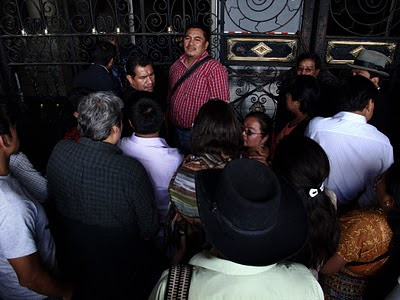


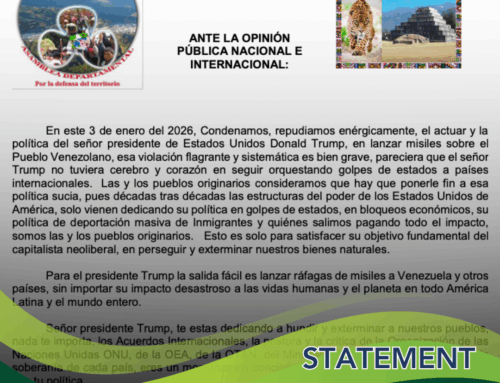
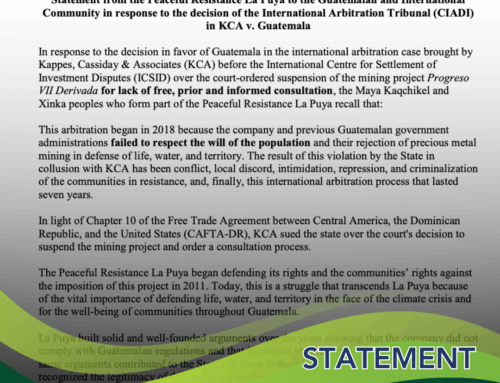


Leave A Comment